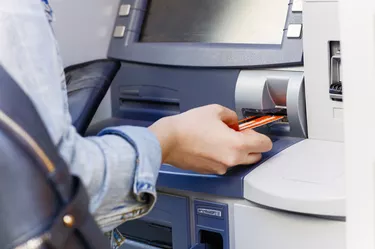
Unauthorized debit transactions can be more dangerous than credit card transactions. Debit card transactions clear instantly, unlike credit card transactions, which can take several days to clear. Here are some important facts about reporting unauthorized debit card transactions and reimbursement for losses.
Loss Limits
Video of the Day
The State of Washington Department of Financial Institutions site provides debit card users with some helpful information about unauthorized transactions. Debit card transaction losses are limited to $50 if the customer notifies the bank within two days. Otherwise the customer could be liable for several hundred dollars of losses. According to the department, if the bank is not notified within 60 days the customer is liable for unlimited debit card losses.
Video of the Day
FTC Regulations
The Electronic Fund Transfer Act governs debit card transactions. According to the Federal Trade Commission (FTC) you must report unauthorized debit card activity to your bank within 10 days, or 20 days if your account was recently opened. The FTC warns that the bank may hold the entire value of the loss while it investigates the unauthorized charges. The bank is also not required to send you a message if it determines that you were liable for the debit card charges.
Other Loss Limits
According to Nolo Press, a self-help legal publisher, the bank is required to prove that you did not quickly report the unauthorized transaction, if it claims you are responsible for more than $50 of losses. In addition, Nolo mentions that the major debit card agencies Visa and MasterCard, as well as many states, have placed a $50 limit of charges for unauthorized debit card transactions.
Chase Regulations
Chase Bank customers can fill out a form to file a statement of dispute about an unauthorized debit card transaction. Chase guarantees the return of the disputed amount to the balance of the user's account within a business day once the bank receives the statement of dispute form, while Chase is researching the transaction. Once Chase has researched the disputed transaction, the bank may later decide to authorize the debit card charge and remove the disputed amount from the customer's balance without sending the customer an additional message.
The Dispute Form
To file a dispute form, First Citizens Bank requires a customer to verify his identity to ensure he is the actual card owner. He then must specify the fraudulent transactions and provide details of the time and merchant who reported the charges. Finally, the customer must explain why he believes the charges are fraudulent.